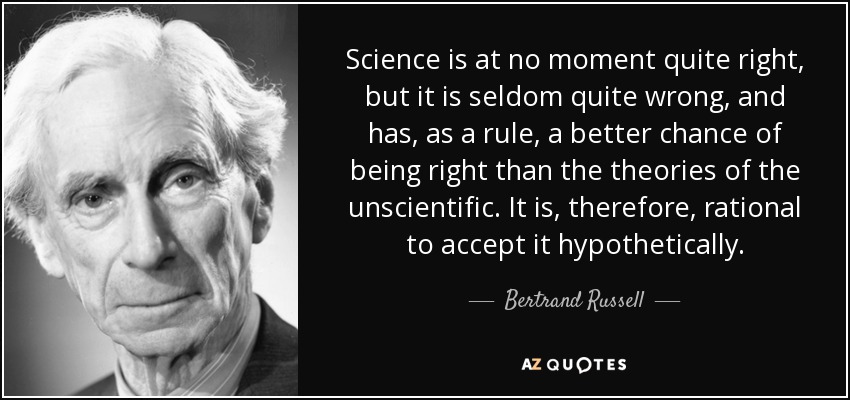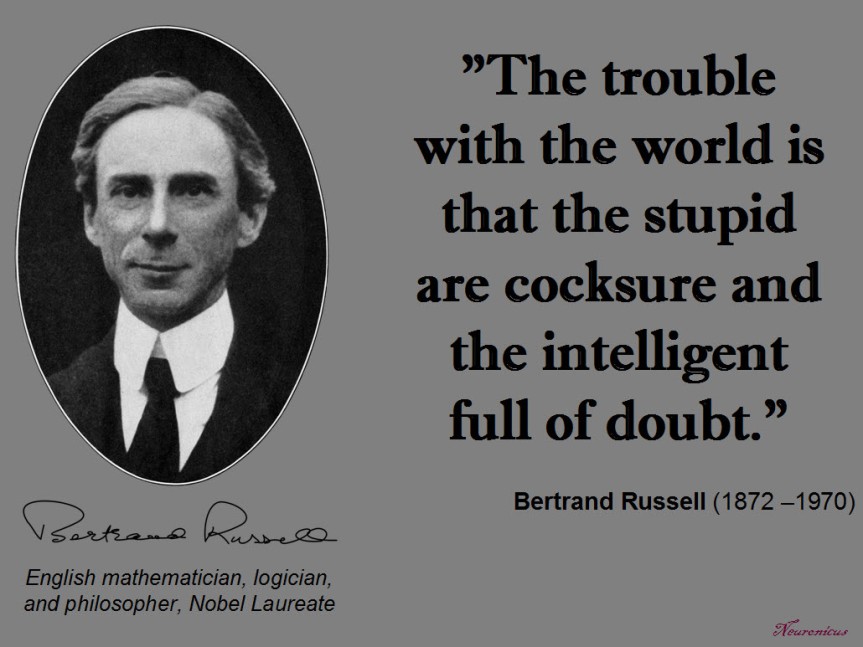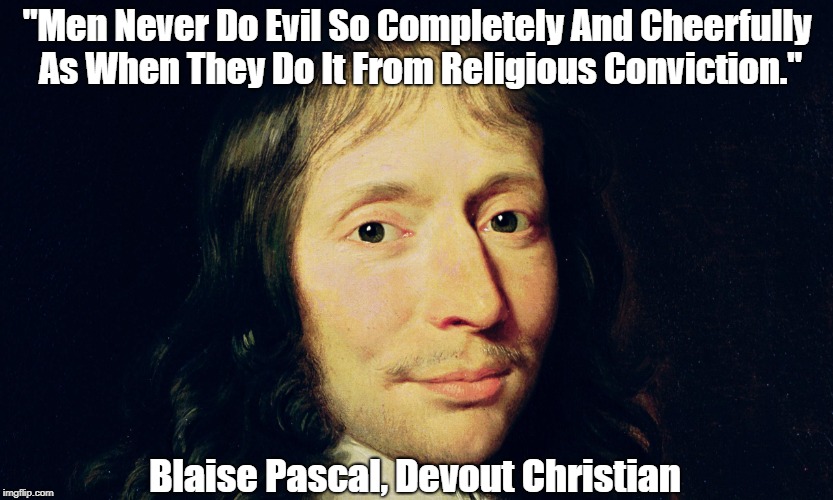Dear Fred,






Oddly, Bertrand Russell who is pretty much Chesterton's mirror image on matters of religion,













Thanks for Frog Hospital.
As I was reading your Africa reflections I said to myself: "I should encourage Fred to recommend
No. 1 Ladies Detective Agency to his readers" and it turned out that's where you were headed all along.
Along the banks of the Limpopo.
Fact-free Africa.
For years I've thought the so-called developed world - especially the United States - was flirting for another Dark Age -- with complete breakdown of centralized political organization; reversion to the endless, bottomless swamp of superstition (even if in the beginning we call it "confirmation bias" or "conspiracy thinking"); the emergence of local lords-caudillos-caciques who promise protection from "The Dark"; and the reemergence of paranoid tribal hostilities where one's own group is seen as "The Only Real People" and all others are totemized as some kind of sub-human animal.
Your Africa writings from years ago were instrumental in fleshing out this "vision."
Speaking of facts...
It is a fact that humankind has spent almost all its time immersed in superstition -- Limpopo-like waters so noxious and pervasive that many (and probably most) people need this all-encompassing, metastatic darkness to keep their identities intact.
Precious Mataka could not stop lying because she HAD to lie to be who she was.
Take away her lies and her identity evanesces as surely as the personality of people afflicted with Alzheimer's.
Who the hell wants that even if somebody from "the intellectual elites" assures them that intellectual rigor brings the light of permanent Day.

Americans are barely conscious that the founders of our national experiment were, at bottom, devotees of The European Enlightenment, with its cornerstone focus on provable, experimental Science - the very opposite of Superstition.
"Deism And Founding Father Links"
http://paxonbothhouses.blogspot.com/2014/06/deism-and-founding-father-links.html
People who need to lie -- and who need to be told lies -- in order to be-and-remain themselves are contemptuous of Science because a bedrock aspiration of Science is to keep people from telling lies -- to others and to themselves.
Just yesterday, I re-worked the following posts.
"The Hardest Truth: People Want To Be Lied To"
Compendium Of Best Pax Posts On Conspiracies And Conspiracism, Updated
Sociologist friend Byron Howe likes to say that Science is the only human undertaking in which practitioners are ferociously dedicated to proving themselves wrong. (All others aggregate presumed truths that confirm our assumptions.)
Absent dedication to prove ourselves wrong we will believe what we want to believe and we will disregard the rest.
As often happens, Chesterton is pertinent.





Oddly, Bertrand Russell who is pretty much Chesterton's mirror image on matters of religion,












Alan: In the end, I see an insoluble conundrum between "the religious instinct" and "scientific logic." Yet somehow we must make enough peace between the two to be practitioners of both.
Buddhism posits three "refuges":
1.) The Buddha "himself"... or enlightenment.
2.) The Dharma... or, the law that informs all things.
3.) The Sangha... or, "the community of kindred believers."
It is this last "refuge" where I believe most "real" refuge lies.
The course of the modern world has enhanced the ascendancy of "the atomized individual" in such ways that "vital community" has been degraded and often destroyed.
Just yesterday, I wrote of this epochal battle between "rugged individualism" and "communitarianism" in Facebook correspondence with a former high school student who is adamant that "homeschooling" is categorically superior to "factory schooling" (... a proposition which, in the context of "factory schooling," is largely true, but also begs this question: "Is "homeschooling" the best alternative to "factory schooling?""
Bloomberg Article As Springboard For Discussion Of Homeschooling And "Factory Schooling"

We believe what we want to believe -- no matter its actual repercussions in the world -- because our foundational beliefs prevent us from "losing our religion," even when that religion is "sex, drugs or rock and roll."
For once we lose our religion, we are back to ground zero, tumbling in a void so fathomless that it is factually true to say that there is neither "up" nor "down" in the domain where we are "falling."
It is also true that everything is probabilistic.
On the eve of the 2016 election, crackerjack statistician Nate Silver determined that the probability of Trump's victory was 15%.
A lot like Russian roulette with a six chamber revolver.
This November the United States presses another firearm against its temple.
This November the United States presses another firearm against its temple.
On Tue, Feb 18, 2020 at 11:06 AM Fred Owens wrote:
FROG HOSPITAL -- Feb. 18, 2020AfricaBy Fred OwensI started writing a story about the time I spent a year in Africa and married an African woman and built a small garden. It was so far away from here, in Zimbabwe in 1997. I started writing a story and the first sentence was, "I wish I had never gone to Africa." Then I stopped writing. Who wants to read a story like that? People want to read something more encouraging and not so dark. I thought I could just color it pretty like the movie Out of Africa with Meryl Streep and Robert Redford, I could keep out most of the bad parts, like the time I got robbed and beaten in Jo Burg. I could make the story more appealing that way with drama, adventure and beauty under vast African skies. I could write this story so well and so convincingly that afterward I would not be able to tell what were the true parts and what were the parts I created from my dreams. It would have to be considered fiction, with that formal designation of genre. Or just call it a story, like the stories my wife told. She could walk ten minutes to the local market to buy tomatoes for dinner and come back with a story. And tell me the story one way, then, when her sister came to visit, tell the story another way. She had no concept of truth. I would get mad at her and say stop lying, just say what actually happened. She could not do that. I would get madder -- are there any facts in Africa? None. Not a single fact from Cairo to Capetown. Fact-free Africa. There was nothing I could do about it.Now, today, this morning, Feb. 18, it is four days after Valentine's Day and two weeks until the Super Tuesday presidential primary on March 3. My plan was to stop the African story and begin some words about the current situation.But I can only pass on a brief conversation I had with my sister Carolyn Therese, older than me by two years. She is a retired teacher from the Los Angeles public schools. Carolyn has lived her adult life in the exciting village of Venice near the beach. She knows many people and frequently talks to them about current affairs. So, besides being a wonderful sister, I consider her to be an excellent source. With that in mind I called her last night and asked her, "Who is going to win the primary on March Third?" She said, "I don't know. I have asked many people how they will vote but nobody has made up their mind yet." That is what she said and that is a fact. We have many facts in our country, unlike Africa, which has many stories and hardly any facts.Botswana is a round country, you can see that on the map. Botswana borders South Africa, Zimbabwe, and Namibia. Actually Botswana is a bit angular on the map that I just looked at, but it feels round to me. Also landlocked, which is the term we use to say no beach, no saltwater, no harbor, and no ocean. It is true that all rivers run to the sea, but Botswana has almost no rivers, except for the headwaters of the Limpopo River. I love that name, Limpopo, Limpopo. Rudyard Kipling wrote, "Go to the banks of the great grey-green, greasy Limpopo River, all set about with fever-trees, and find out." I did find out. I saw the Limpopo, saw the water-loving fever trees on the banks. I didn't see the crocodiles, but I'm sure they saw me.I flew over the Limpopo at a low altitude in a two seater ultra-light aircraft, piloted by a wealthy South African white man who owned a large ranch on the banks of the Limpopo, called Sentinel Farm. We stayed at Sentinel Farm for several days looking at acacia trees. This was on a weekend expedition of the Zimbabwe Tree Society, a group of amateur botanists, mostly local people of British descent who loved trees.Jonathan Timberlake had very fair freckled skin and red hair. He had written a guide book to the acacia trees of Zimbabwe and their many varieties. Poor Jonathan, as much as he loved Africa, the sun was killing his skin and he must venture outdoors swathed from head to toe in light cotton covering to shield himself from the sun. I heard later that he was forced to return to England because of this. I should make an editorial comment. It goes like this. Some white people get to live in Africa their whole lives. But many white people only get to live there for a certain amount of time -- a year, a decade, a few months. You never know how long. and it doesn't matter how much you want to stay or how much that you feel that Africa is the core of your soul's purest meaning. It's a mystery, but one day you're on a plane back to England, or to the states. And it's final, you can't come back. I'm not sure about that last part. Maybe you can come back to Africa. I will explore that idea later.But at Sentinel Farm, beside the great grey-green greasy Limpopo river, the members of the Zimbabwe Tree Society wandered about the many thousands of acres of land which the white man owned, although there seemed to be entire villages of local people living there. In any event we weren' t there to discuss colonial history, we were there with magnifying glasses to examine the spores on the underside of the leaves of the acacia trees, and to look at bugs and flying insects and butterflies that might serve as pollinators, and to look at the vast blue African sky.Besides having a genuine interest in acacia trees, I joined the Zimbabwe Tree Society because we camped on expensive safari property at the local rate. Tourists would have paid hundreds of dollars for a tour of Sentinel Farm.The Study Manual for this week's Frog Hospital newsletter is a novel titled The Tears of the Giraffe, written by Alexander McCall Smith, about the No. 1 Ladies Detective Agency which is owned and managed by Precious Ramotswe. The book takes place in Gabarone, the capital of Botswana. When I was in Botswana I encountered many people who appeared to be characters in this novel. I will marshal more facts about Botswana, but to learn about these people, read this fictional book, or any of the many other novels written about Precious Ramotswe, proprietor of the No. 1 Ladies Detective Agency.And be sure to vote on March 3,And, with regard to the corona virus, be sure to wash your hands frequently with hot water and soap.Until next time, your friend always,Fred

No comments:
Post a Comment